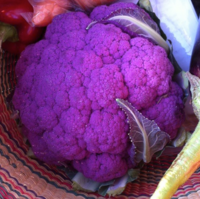
Counter-current fractionation-assisted and bioassay-guided separation of active compounds from cranberry and their interaction with α-glucosidase
Sign Up to like & getrecommendations! Published in 2021 at "Lwt - Food Science and Technology"
DOI: 10.1016/j.lwt.2021.111374
Abstract: Abstract An effective method for the selection of active compounds from cranberry based on counter-current fractionation and bioassay-guided separation was established. Cranberry extract showed potential α-glucosidase inhibitory activity. The active compounds were extracted by different… read more here.
Keywords: glucosidase; active compounds; counter current; interaction ... See more keywords

Environmental Conditions after Fusarium Head Blight Visual Symptom Development affect Contamination of Wheat Grain with Deoxynivalenol and Deoxynivalenol-3-Glucoside.
Sign Up to like & getrecommendations! Published in 2022 at "Phytopathology"
DOI: 10.1094/phyto-06-22-0199-r
Abstract: Fusarium head blight (FHB) of wheat, caused by the fungus Fusarium graminearum, is associated with grain contamination with mycotoxins such as deoxynivalenol (DON). Although FHB is often positively correlated with DON, this relationship may break… read more here.
Keywords: deoxynivalenol; contamination; head blight; fusarium head ... See more keywords

Effect of Soybean Protein Isolate-7s on Delphinidin-3-O-Glucoside from Purple Corn Stability and Their Interactional Characterization.
Sign Up to like & getrecommendations! Published in 2022 at "Foods"
DOI: 10.3390/foods11070895
Abstract: Anthocyanins are abundant in purple corn and beneficial to human health. Soybean protein isolate-7s (SPI-7s) could enhance the stability of anthocyanins. The stable system of soybean protein isolate-7s and delphinidin-3-O-glucoside complex (SPI-7s-D3G) was optimized using… read more here.
Keywords: delphinidin glucoside; spectroscopy; soybean protein; protein isolate ... See more keywords

Glucose-Dependent Insulinotropic Polypeptide and Substance P Mediate Emetic Response Induction by Masked Trichothecene Deoxynivalenol-3-Glucoside through Ca2+ Signaling
Sign Up to like & getrecommendations! Published in 2022 at "Toxins"
DOI: 10.3390/toxins14060371
Abstract: Deoxynivalenol (DON), the most naturally-occurring trichothecenes, may affect animal and human health by causing vomiting as a hallmark of food poisoning. Deoxynivalenol-3-glucoside (D3G) usually co-occurs with DON as its glucosylated form and is another emerging… read more here.
Keywords: brain gut; deoxynivalenol glucoside; d3g; emetic response ... See more keywords